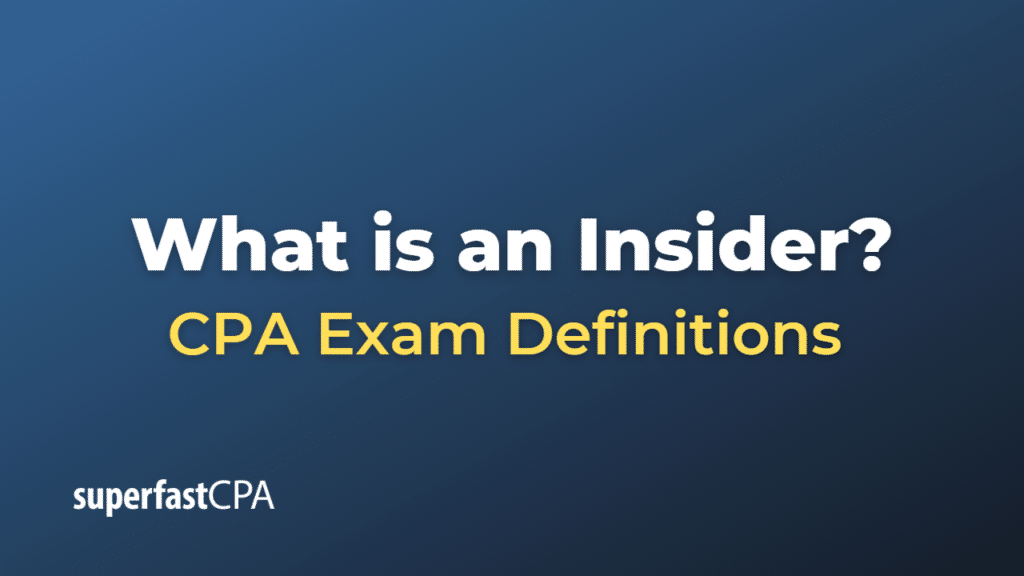Insider
In a corporate context, an “insider” typically refers to a person who has access to confidential, non-public information about a company. This can include corporate executives, directors, and employees, as well as any large shareholders who own more than 10% of the company’s shares.
Insiders have a fiduciary duty to the company and its shareholders, and are subject to certain legal restrictions and requirements. For example, in many jurisdictions, insiders are prohibited from trading the company’s stock based on non-public information, a practice known as insider trading. Any stock trades made by insiders must be reported to regulatory authorities, such as the Securities and Exchange Commission (SEC) in the United States.
In a broader sense, the term “insider” can also refer to anyone who has access to confidential or privileged information in any context, not just in relation to a corporation.
Example of an Insider
Let’s consider a fictional technology company called “FuturoTech.”
In this case, some “insiders” of FuturoTech could be:
- CEO – John Doe: As the Chief Executive Officer, John Doe is responsible for managing the company and makes major corporate decisions. He has access to critical, non-public information about the company’s strategy, financials, and future plans.
- CFO – Mary Smith: As the Chief Financial Officer, Mary Smith is privy to the company’s financial health and strategies, also classified as non-public information.
- Board Member – Alan Brown: Even though Alan might not be involved in the daily operations of the company, his role as a board member grants him access to crucial information about the company, making him an insider.
- Major Shareholder – Jane Johnson: Jane owns 15% of the company’s shares, which places her above the typical 10% ownership threshold for being considered an insider.
All of these people have access to confidential, non-public information about FuturoTech. They must be careful not to misuse this information, especially when it comes to trading FuturoTech’s stock. If they trade based on non-public information, they could be charged with insider trading, which is illegal.













